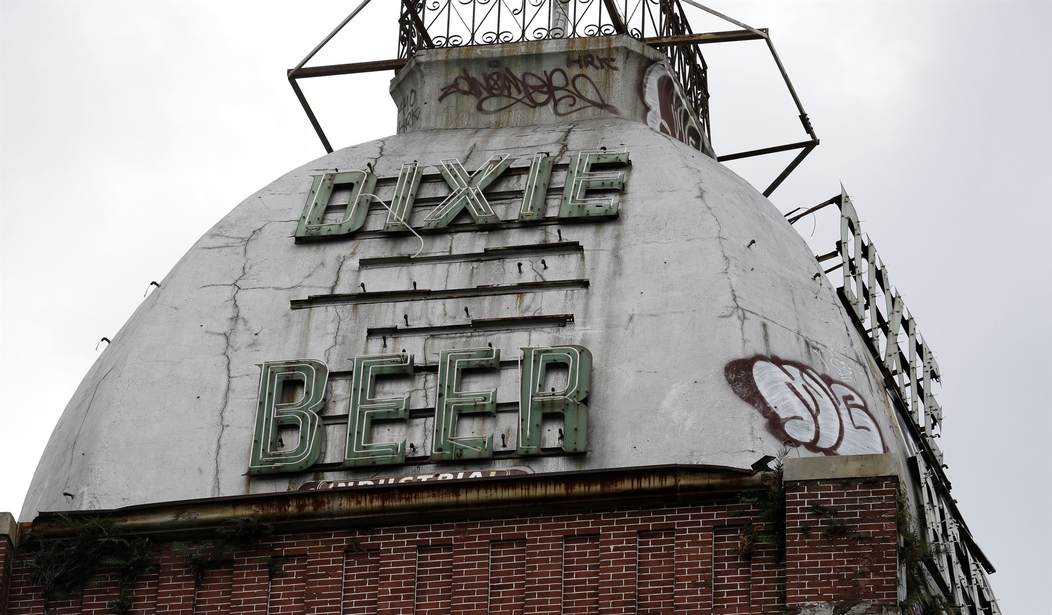Happy Craft Beer Week! Presented by the Brewer’s Association (BA), this week is “the week to galvanize beer lover support for small and independent breweries.” Collectively, small and independent craft breweries provided more than 23 million barrels of beer to American adults amid the COVID-19 pandemic in 2020.
As defined by the BA, craft breweries are limited to brewing only 6 million barrels a year or less and make up approximately three percent of annual U.S. beer sales. Continuing in the spirit of small business, fewer than 25 percent of craft breweries are “owned or controlled by a beverage alcohol industry member that is not itself a craft brewer.” It is estimated that the majority of Americans “live within 10 miles of a craft brewer.” Further, they’re an economic boon for the states and provide hundreds of thousands of jobs. In 2020, craft breweries were responsible for “138,999 direct jobs,” including employees in microbreweries, brewpubs, taproom breweries, and regional craft breweries.
Unfortunately, like every other industry, craft breweries were affected by COVID-19. In a March, 2020 survey of craft breweries, BA found that more than 90 percent of respondents’ businesses were impacted by the pandemic-related business closures and 95 percent reported expecting sales to be down. In its 2020 annual production report, BA noted that craft beer’s market share by volume was down by 9 percent from 13.6 percent of the market in 2019 to 12.3 percent in 2020. BA remarks that this decline was not largely attributed to COVID-19, as “market competitiveness and maturity were also factors” in the decline, which was apparent even prior to the pandemic.
Recommended
Despite rampant closures of their businesses, craft breweries stepped up to plate and started brewing hand sanitizer instead of barley-infused libations. Beginning as early as March, 2020, Dogfish Head Craft Brewery began manufacturing hand sanitizer that was sold to the state of Delaware and all profits went to a program by the Delaware Restaurant Association to help impacted restaurant workers. Scores of other breweries – and distilleries –also stepped up and changed production from beer to hand sanitizer.
Trying to adapt and navigate the new hand sanitizer business wasn’t all smooth sailing. Last year, Reason reported that, “In the early days of the COVID-19 pandemic, many distillers shifted their production from spirits to hand sanitizer, complying with emergency guidance from the FDA. Much of this sanitizer was donated or sold at a low margin, helping to alleviate a dire shortage. These same distilleries were surprised this week by a notice from the FDA informing them that they were required to pay a fee of more than $14,000 as over-the-counter drug production facilities to cover the costs of FDA regulation.” Fortunately, that fee was waived. It shouldn’t have been there in the first place.
Fortunately, the pandemic did provide some sort of relief in loosening restrictions. Many states allowed breweries to sell to-go beers and/or allowed for delivery sales. Delivery services like GrubHub are allowed to transport alcohol to adult consumers in some localities and states. Hopefully lawmakers will embrace these sales options and not return to prior policies which restricted such sales.
It should be noted that as small businesses, craft breweries are generous in philanthropic giving. According to BA, in 2016, American craft brewers “donated an estimated $73.4 million to charitable causes.” This was an increase from $71 million in 2014. Some brewers were established just to give money to such causes. Started in 2012, Save The World Brewing Co. was to be “America’s first 100% philanthropic production craft brewery.” A veteran-owned craft brewery in Vermont, 14th Star Brewing Co., is “on a mission to brew world-class beer while enriching our community.” The brewery donates a portion of all sales to various charitable organizations that benefit veterans, children, and in need persons.
Craft breweries giving back is an awesome thing, especially given the fact that beer is subject to exorbitant excise taxes – including a $3.50 per barrel federal excise tax “on the first 60,000 barrels for domestic brewers producing fewer than two million barrels annually” and “$16 per barrel on the first six million barrels for all other brewers and all beer importers.” Further, states impose their own excise taxes ranging from $0.02 per gallon in Wyoming to $1.29 in Tennessee. According to the Beer Institute, nearly half (40 percent) of the retail price is estimated to go towards taxes and existing research indicates that “the tax burden borne by beer drinkers is more than 68 percent higher than for the average purchase made in the U.S.”
Ultimately, craft breweries are a tremendous asset in local and state economies. As the country tips its mugs, bottles, and cans to celebrate National Craft Beer week, whether it’s with the favorite local pale ales, or sip on a lager from America’s oldest brewery (which may end up losing its place as the America’s largest craft brewery), everyone should show appreciation for craft brewers’ tenacity and their eagerness. Not only are do these small businesses provide economic gains, they give America more than just a buzz and are invested in giving back to communities.
Lindsey Stroud is a policy analyst with Taxpayers Protection Alliance.

























Join the conversation as a VIP Member